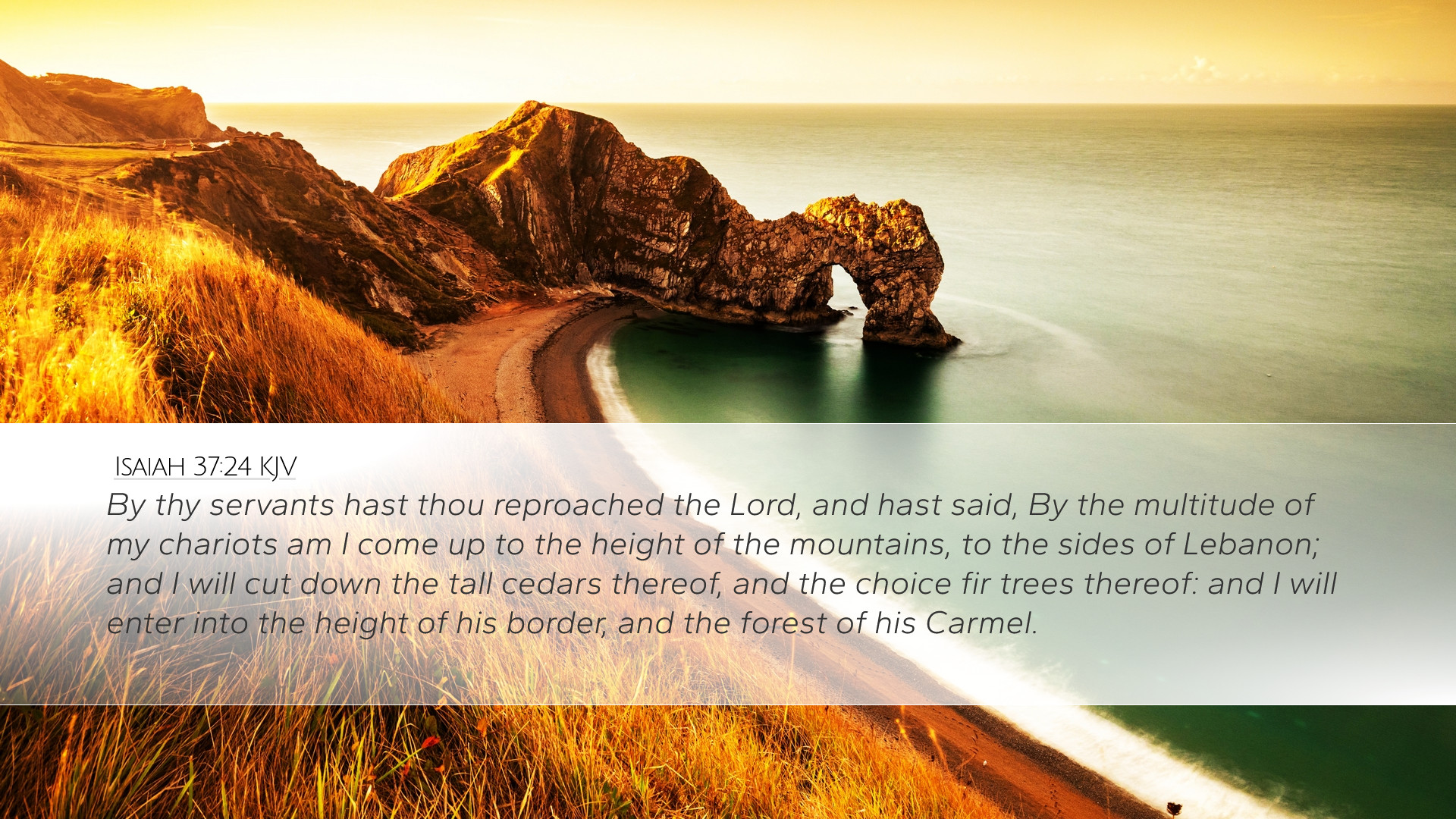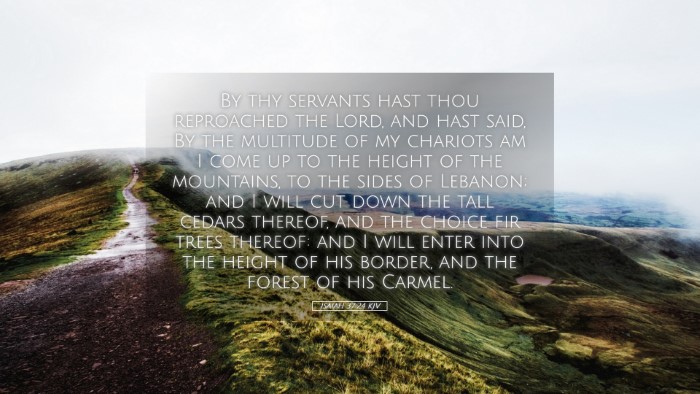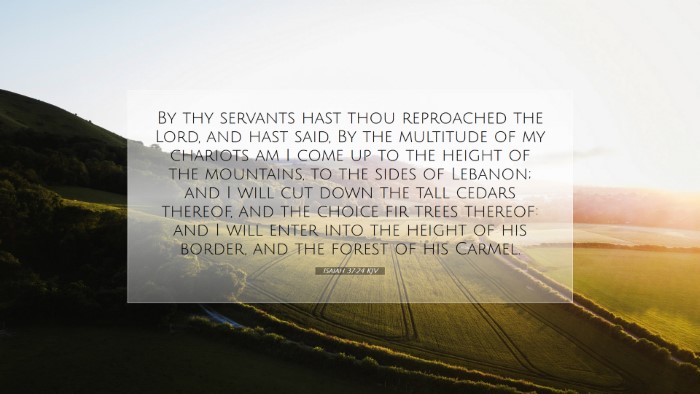Commentary on Isaiah 37:24
Verse Context: Isaiah 37:24 states, "By your servants you have reproached the Lord, and you have said, 'With my many chariots I have gone up the heights of the mountains, to the far recesses of Lebanon; I felled its tallest cedars, its choicest cypress trees; I entered its farthest lodging place, its densest forest.'" This verse is situated within a narrative where the Assyrian king, Sennacherib, boasts of his conquests and power over nations.
Historical Background
The historical context of this passage is significant. Sennacherib had launched a campaign against the Kingdom of Judah, threatening the city of Jerusalem. His pride and blasphemy are evident as he challenges the God of Israel, seeking to undermine the faith of His people.
Insights from Commentaries
Matthew Henry:
Matthew Henry elaborates on the implications of Sennacherib's words. He notes that the Assyrian king’s confidence in his military might is misguided due to his inability to recognize the sovereignty of God. Henry emphasizes that such arrogance leads to a downfall, drawing a parallel with the fate of those who trust in their own strength rather than in the Almighty.
Albert Barnes:
Albert Barnes provides an analysis of the metaphorical language used in this verse. He interprets "high places" as symbolic of military strength and superiority, indicating a prideful ascent against God’s will. Barnes points out that the mention of Lebanon's cedars highlights Sennacherib's desire to portray himself as a deforester of God's creation, an act of dominion that blinds him to the ultimate authority of the Creator.
Adam Clarke:
Adam Clarke delves into the spiritual ramifications of Sennacherib’s declarations. He argues that such boastfulness not only reveals a profound ignorance of God’s power but serves as a warning to all who question divine authority. Clarke underscores the necessity of humility before God, especially for those in positions of power.
Theological Implications
The theological themes in Isaiah 37:24 resonate deeply. This verse serves as a reminder of the nature of idolatry and pride. It challenges us to consider where we place our trust: in human strength or divine support.
- The Sovereignty of God: The verse reinforces the concept that while kingdoms may rise and fall, God remains the ultimate authority over all creation.
- The Folly of Pride: Sennacherib’s confident proclamations are met with silence from the Almighty, illustrating that human pride leads to spiritual ruin.
- God’s Response: Subsequent verses reveal God’s stand against blasphemy, assuring believers that He protects and defends His name and His people against those who defy Him.
Practical Applications
For pastors, students, theologians, and scholars, there are several practical applications to draw from Isaiah 37:24:
- Encouragement in Times of Crisis: The church should encourage believers to remember God’s sovereignty when faced with seemingly insurmountable challenges.
- Importance of Humility: This passage invites a reflection on the importance of humility in Christian leadership and stewardship.
- Prayer and Dependence on God: The narrative encourages a posture of prayer and dependence on God, especially when confronting worldly powers or situations beyond our control.
Conclusion
Isaiah 37:24 serves not only as a historical account of Sennacherib’s arrogance but also a timeless reminder of God’s unassailable authority. Through the insights of Matthew Henry, Albert Barnes, and Adam Clarke, we gain a richer understanding of the verse's implications. As we reflect on this passage, may we be urged towards greater faith and reverence for the Creator, recognizing that true strength lies not in our capabilities but in our relationship with God.


